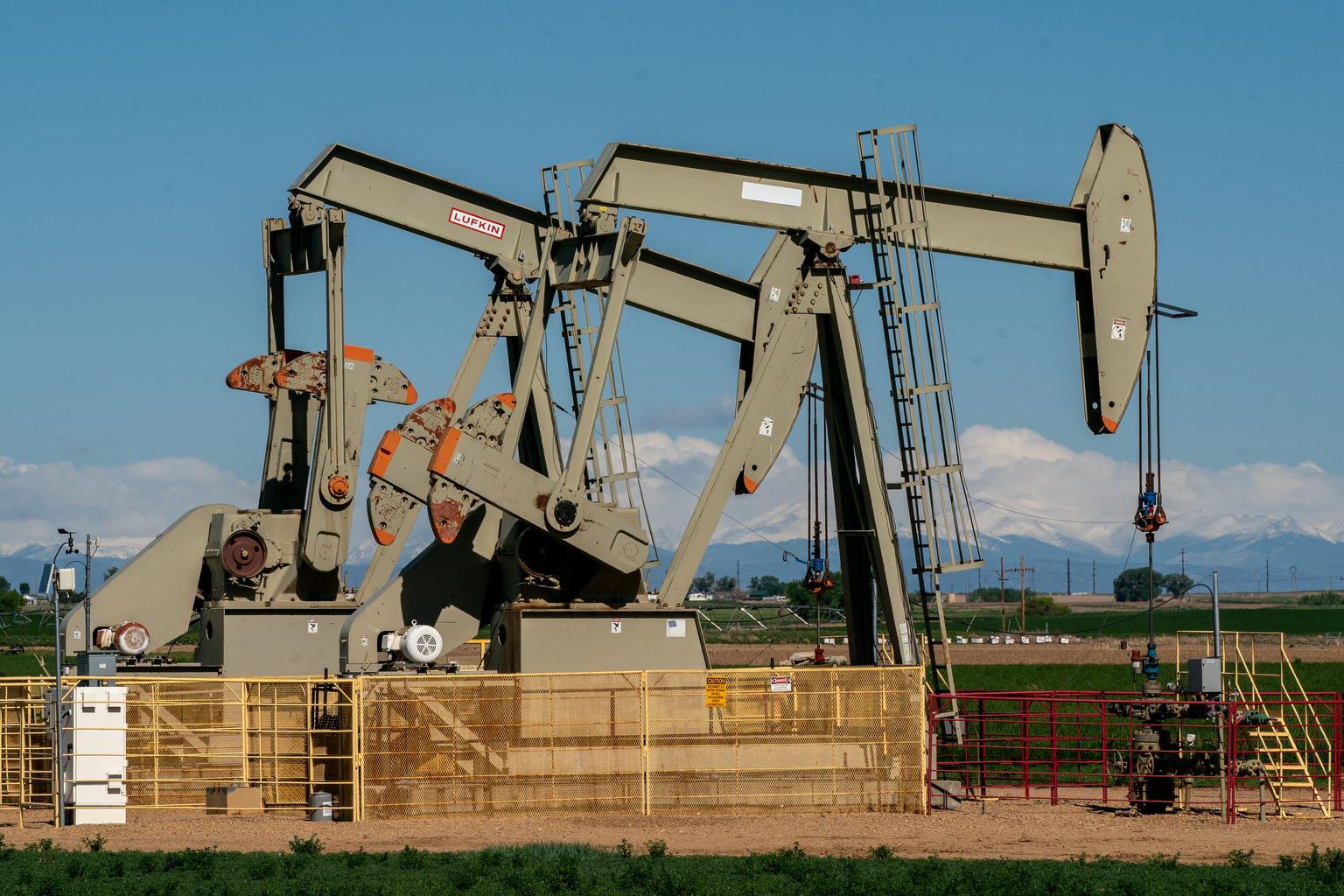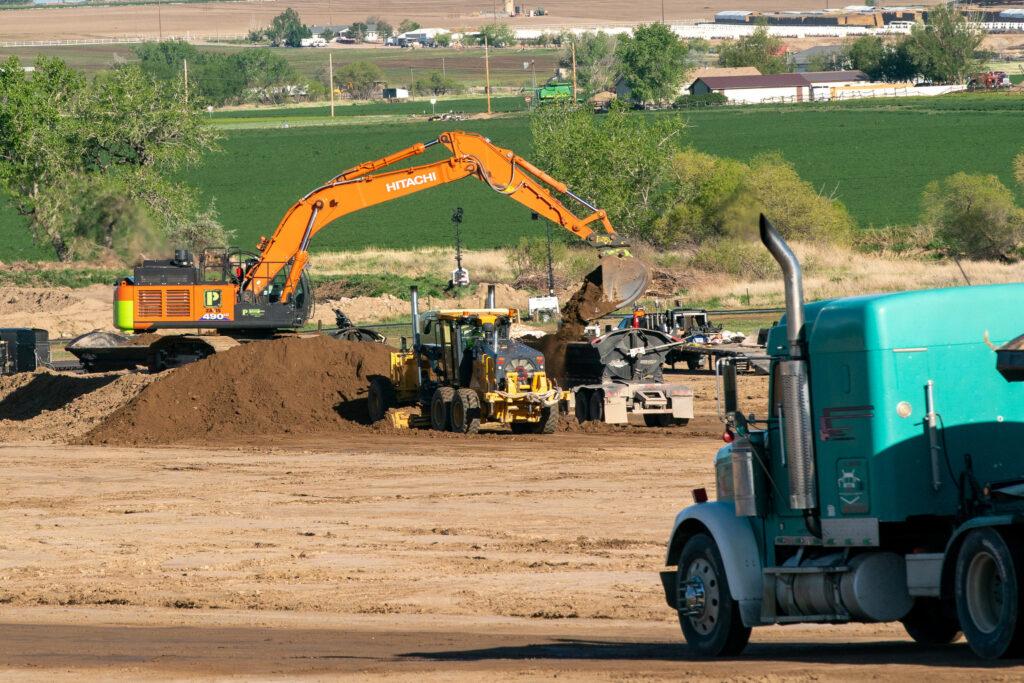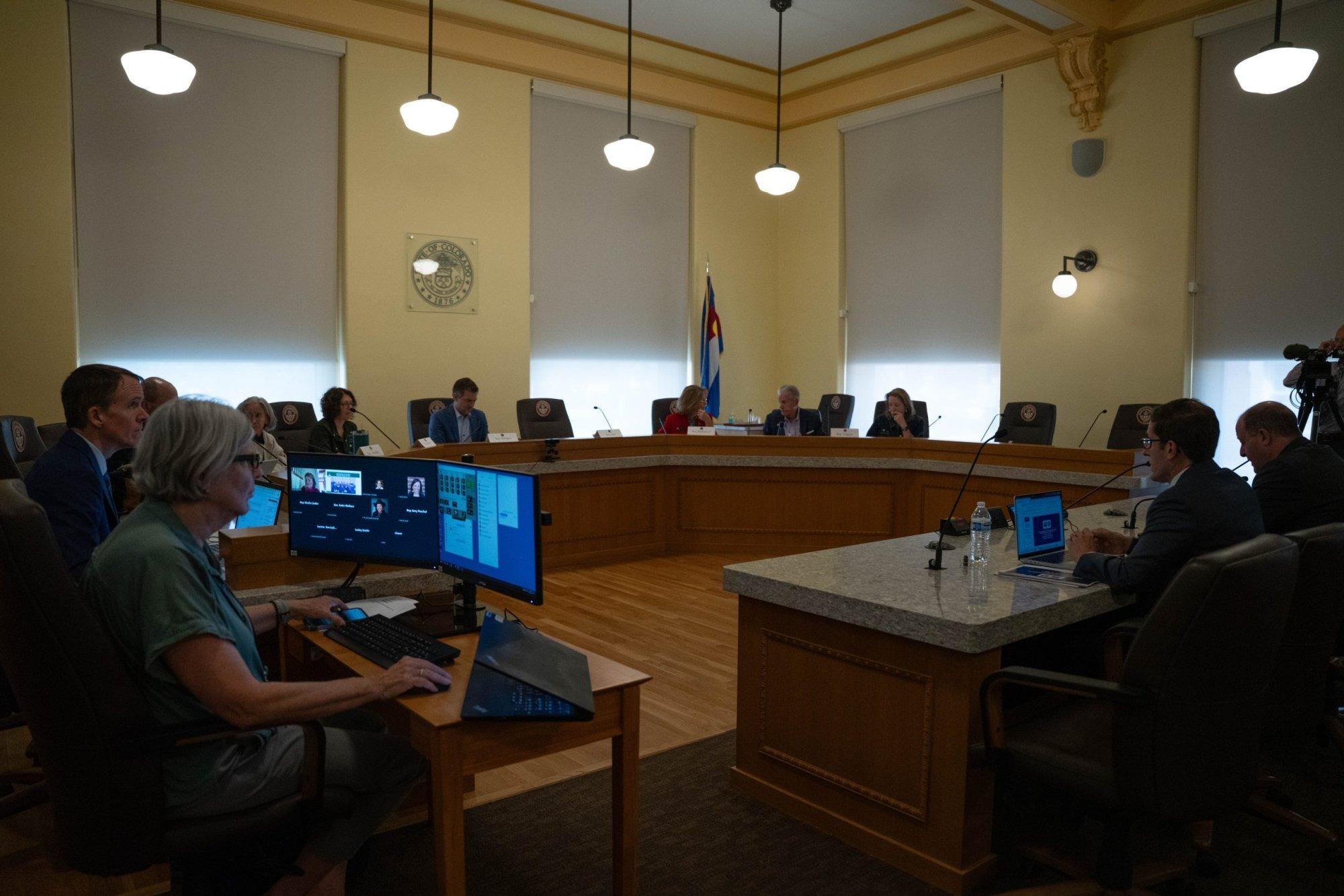
A report released by environmental advocacy groups last week claims oil and gas companies haven’t been complying with a 2022 state law that requires them to disclose all chemicals used in hydraulic fracturing and drilling operations.
As a result, the analysis estimates operators have injected 30 million pounds of unknown chemicals into the ground throughout Colorado in the past 21 months. According to the report, Chevron and its subsidiaries make up over half of the undisclosed wells.
Physicians for Social Responsibility published the report on May 20 along with Physicians for Social Responsibility Colorado, FracTracker Alliance and the Colorado Sierra Club.
It comes almost three years after Gov. Jared Polis signed HB 22-1348, a first-in-the-nation law that requires oil and gas companies to report chemical compounds used during hydraulic fracturing, a process better known as fracking, and drilling. The law took effect in July 2023.
“Whoever knows the information has to supply the information fundamentally,” Ramesh Bhatt, the conservation chair of the Colorado Sierra Club, told CPR News. “The result of this lack of compliance with the 2022 law now is that we know nothing about 30 million pounds of chemicals that have been used.”
The Colorado Energy and Carbon Management Commission is responsible for holding companies accountable for compliance. A spokesperson for the commission said no punishment has been levied on those companies who have not filed.
In a written statement, the commission said, “The Colorado Energy and Carbon Management Commission (ECMC) takes enforcement seriously and has been working with operators to ensure compliance with Colorado law, including reporting requirements … We are committed to holding any violators accountable.”
The spokesperson also said, “On May 21 at a public hearing, ECMC Commissioner Mike Cross committed to reviewing and reporting back to the Commission about the claims made in the report.”
To comply with the law, an oil and gas company uses FracFocus, a nationwide database maintained by state environmental health officials to track chemicals used in hydraulic fracturing.
The registry, however, allows companies to decline to identify a specific ingredient if it’s seen as a “trade secret.” The law removed the exemptions in Colorado, requiring oil and gas operators to disclose the chemical information through the Colorado Energy and Carbon Management Commission. The regulator must then compile and publish the information for a final review on a publicly accessible website.
In a written statement, Patty Erico, a Chevron spokesperson, said the company has disclosed chemicals in compliance with the Colorado law. She acknowledged some of those products used in the fracking process are registered as “trade secrets,” but wrote it’s up to chemical manufacturers, not operators, to register the exact ingredients with state regulators.
Environmentalists and the lawmakers disagree with that interpretation.
“The oil and gas people are saying, ‘Oh, it's not really us. It's the chemical companies that are supposed to do this compliance.’ And the bill's pretty clear on that,” Meg Froelich, one of the state representatives who sponsored HB 22 -1348, said. “It says both chemical companies and operators, there’s a whole section of the bill on operators.”
Lynn Granger, the President and CEO of the Colorado Oil and Gas Association, called the report "disappointing" since it equates a noncompliance issue with public health concerns. She said the oil and gas industry has every intention of following state regulations, and it’s struggled with IT issues on chemical disclosure forms.
“We have had a pretty large regulatory overhaul over the last several years on both the energy and management commission,” Granger told CPR News. “Our industry has come to the table and it is an industry that wants to comply with every regulation that we have on the books in the state of Colorado."
Granger said that the Colorado Oil and Gas Association is meeting with ECMC this week to discuss compliance issues.
A battle over disclosing fracking chemicals
Fracking requires pumping liquid into porous rock to break it apart and stimulate the release of trapped oil and gas. Some of that liquid contains chemical additives to more effectively open cracks and stimulate oil and gas production.
According to FracFocus, different chemical compounds are found in different mixes, and “dozens of other fluids” that act as corrosion prevention, lubricant for the well and prevents bacteria growth. Meaning a cocktail of chemicals are used throughout the process.
But, according to Froelich, one of the state representatives who sponsored HB 22 -1348, operators have failed to follow the requirements according to the law, or how the lawmakers were hoping.
“It's commensurately disappointing, frustrating, makes you mad, that it turns out that there just really isn't compliance.” Froelich told CPR News.
She compared the bill to a nutritional label.
“The industry pushed back, saying, ‘Coca-Cola can't be required to disclose its secret formula.’ Yeah, that's true. But what's on the side of a Coke can? All the ingredients in Coke. That's all that our bill says,” Froelich said. “Tell us the chemicals that you're putting down (to) process oil and gas operations in Colorado.”
She says she’s looking to Polis to push for compliance.
“I look forward to the administration adhering to their own environmental goals. I mean, the governor signed this bill, it's in line with what he wants to accomplish in Colorado,” Froelich said. “This is his agency under his purview. So we hope to see compliance.”
The report suggests Chevron and its subsidiaries have the most undisclosed reports. A Chevron well exploded in Weld County earlier this year and an investigation is still underway determining how much crude oil, chemicals and water were released.
The well took nearly five days to fully secure and resulted in a rush of chemicals onto homes, cars, fences and multiple creeks.

Chevron told CPR News that the “vast majority of components in fracturing fluid are also used in well-known everyday products,” and pointed to water, salt and citric acid as examples.
Most of the undisclosed drilling happened in Weld County, according to a map created by FracTracker.
Brett Cavanaugh, the Director of the Weld County Oil and Gas Energy Department, said he is working closely with ECMC to help operators follow the reporting requirements. Cavanaugh is a county employee.
“ECMC is evaluating next steps to obtain compliance, including potential enforcement action. We are committed to holding any violators accountable,” Cavanaugh wrote in an emailed statement.
Database discrepancies
The amount of undisclosed chemicals was found by looking at the amount of chemicals reported as trade secrets on FracFocus and comparing those to the chemicals disclosed to ECMC.
The discrepancies between the two added up to 30 million pounds, according to the report.
Gary Allison is the main data analyst behind the report and the founder of OpenFF, an open-source site that takes FracFocus data and makes it more accessible. The environmental groups contracted Allison to analyze the data used in the report.
“In that FracFocus database, we can tell when a well has been fractured and the chemicals that have been added to it based on the FracFocus data. And then we can use that to see if it's actually also been disclosed in the ECMC database.” Allison said.
By comparing the two databases, he found that a little under 40% of the wells had been disclosed by their legal deadline. Allison added that the 30 million undisclosed chemical estimate isn’t even the whole picture.
Allison said the law requires companies to disclose chemicals used in both the fracking and earlier in the process during drilling. But the drilling information is not yet available.
“There's no record of the drilling chemicals in Colorado’s data yet,” Allison said. “The amount of undisclosed chemicals is way higher than we put in the report.”
Potential consequences for noncompliance
ECMC can issue fines up to $15,000 a day for not complying with the 2022 law. At the lowest fine of $200 per day, over $37 million in penalties could be levied against Colorado oil and gas operators, according to the report.
“There's a fiscal impact, there's a fairness aspect,” Froelich said. “If the companies that are not in compliance, which the report mentions are big operators in Colorado, that's not fair that they can not comply and not be fined and not be held accountable.”
Bhatt, the conservation chair of the Colorado Sierra Club, told CPR News that it’s “too early to know” if there will be a lawsuit filed for the missing information.
“We are hoping that publicizing this and exhorting the state agencies that oversee these things to do the right thing and to protect the people in the environment,” Bhatt said
- Supreme Court backs Utah oil railroad expansion, endorsing limited version of key environmental law
- Colorado study suggests that proximity to oil and natural gas wells increases risk of childhood leukemia
- Investigation ongoing for ‘unprecedented’ blown well in Weld County that contaminated nearby waterways









